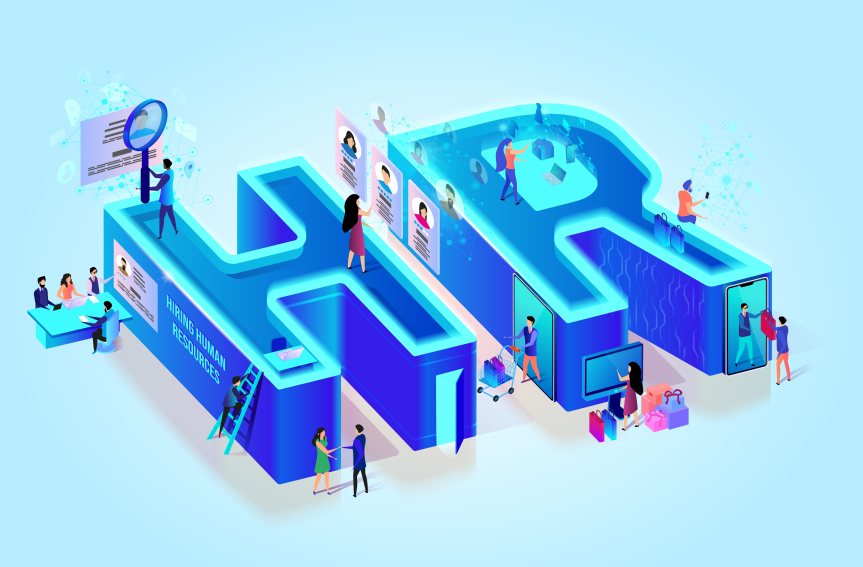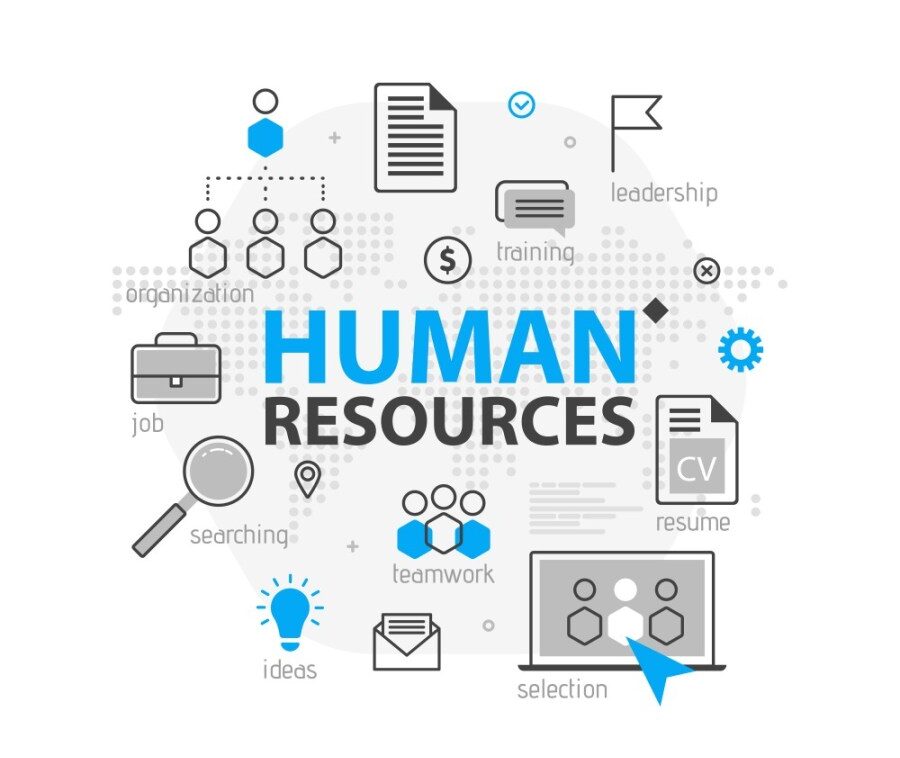If you’re an experienced HR professional who is looking for a new challenge, then a career as an HR project manager might be the perfect fit for you. In this blog post, we’ll take a look at what an HR project manager does, what skills and experience are required for the job, and what kind of salary you can expect to earn in this role.
HR Project Manager Description
A Human Resources Project Manager is responsible for leading and managing human resources projects from start to finish. This includes planning and executing projects, as well as ensuring that they are completed on time and within budget.
HR Project Managers also work closely with other members of the HR team, as well as with other departments within the company, to ensure that projects are coordinated and run smoothly.
In order to be successful in this role, Human Resources Project Managers must have strong project management skills, as well as excellent communication and interpersonal skills. They must also be able to handle multiple tasks simultaneously and be able to adapt to changing circumstances.
What is an HR Project Manager Expected To Do?
A human resources project manager is expected to wear many hats. From handling day-to-day operations and tasks to developing and leading long-term strategic initiatives – a human resources project manager is expected to have a broad skill set and experience base.
One of the most important roles an HR Project Manager plays is that of a change agent. In any organization, change is inevitable – whether it be large-scale organizational changes or small team dynamic changes.
An HR Project Manager is expected to help lead, manage, and drive multiple projects in a way that is efficient, effective, and has a minimal negative impact on the employees involved. This can be a difficult role to fill but is essential for any successful human resource project manager.
Other key roles and responsibilities of HR Project Managers are as follows.
Project Charter Formulation
As an HR project manager, one of your key responsibilities will be to formulate the project charter. This document will serve as a roadmap for the entire project, outlining the objectives, the project scope, and the timeline.
In order to develop an effective charter, you will need to consult with the internal stakeholders from across the organization. This includes the HR department, IT, finance, and other departments that will be affected by the project. Once you have gathered input from all of the relevant parties, you can begin drafting the charter.
Keep in mind that the charter should be concise and clear; it should not try to accomplish too much. Once the charter is approved by senior management, you can begin working on the next phase of the project.
Vendor Management
In terms of vendor management, an HR Project Manager is responsible for ensuring that all vendors involved in the project are meeting their obligations and deliverables. This includes communicating with vendors, inspecting work, and resolving any issues that may arise.
An Human Resources PM must also keep track of vendor invoices and payments, as well as maintain open lines of communication with the organization’s purchasing department. By effectively managing vendors, an HR Project Manager can help to ensure the successful completion of a project.
Contract Negotiation
A key component of an HR Project Manager’s job is to negotiate contracts with vendors and service providers. In order to do this effectively, it is important to have a clear understanding of the organization’s needs and objectives.
Additionally, the Human Resources Project Manager must be familiar with the terms and conditions of the various contracts in order to make informed decisions about which vendor or service provider will best meet the organization’s needs.
Furthermore, the HR PM must be able to effectively communicate the organization’s needs to the vendor or service provider in order to negotiate favorable terms and conditions.
By taking these factors into consideration, the HR Project Manager can ensure that the organization obtains the best possible terms and conditions for its vendors and service providers.
Do you want to manage HR projects successfully?
Contact Growth Hackers
Training & Development
As an HR project manager, you will be responsible for developing and delivering training programs that meet the needs of your organization. In order to do this effectively, you will need to have a solid understanding of both adult learning principles and the latest instructional design methods.
You will also need to be able to assess the training needs of your employees and identify the most appropriate delivery methods. Additionally, you will be responsible for managing the budget for your training programs and ensuring that they are delivered on time and within budget.
Once the programs are up and running, you will also be responsible for monitoring their effectiveness and making changes as necessary. By developing and delivering effective training programs, you can play a key role in helping your organization meet its goals.
Employee Relations
Employee relations is a broad term that encompasses many different aspects of the employer-employee relationship. As an HR project manager, it is your responsibility to ensure that employee relations within your organization are positive and productive.
This means creating and maintaining a work environment where employees feel respected, valued, and motivated. It also means addressing any issues that may arise in a timely and effective manner. In order to be successful in this role, you must have strong communication and interpersonal skills.
You must also be able to build trust and rapport with employees at all levels of the organization. By maintaining positive employee relations, you can create a productive and positive work environment for all.
Process Improvement/Re-engineering
In order to be successful, businesses need to continuously evolve and adapt to the ever-changing landscape. One way they can do this is through process improvement, which is the systematic examination of current processes in order to find ways to make them more efficient or effective.
HR project managers are expected to have a deep understanding of both business processes and people management. They need to be able to identify inefficiencies and bottlenecks in current processes, as well as develop and implement solutions that improve performance.
In addition, HR project managers must be able to effectively communicate with and motivate employees to buy into the changes being made. Ultimately, the goal of any process improvement initiative is to create a more streamlined and efficient workplace – and HR project managers play a vital role in making that happen.
Policy Development & Implementation
The role of the HR project manager is to develop and implement policies and training seminars that support the human resources function of an organization. This can include developing policies on recruitment and selection, training and development, employee relations, and health and safety.
The HR project manager will also be responsible for ensuring that these policies are compliant with applicable laws and regulations. In addition, the HR project manager will work with other members of the HR team to ensure that the policies are effectively implemented and communicated to employees and the project stays on the right course.
Talent Acquisition/Retention
As an HR Project Manager, one of your primary responsibilities will be to manage talent acquisition and retention within your organization. This can be a challenge, as you will need to identify talented individuals who fit your company’s needs and culture, and then convince them to join your team.
To do this effectively, you will need to have a strong understanding of both the job market and your company’s unique strengths. Additionally, you will need to be able to sell potential candidates on the idea of joining your team.
This can be done by highlighting the unique benefits that your company offers, such as competitive salaries, flexible work hours, and great career development opportunities. By successfully managing talent acquisition and retention, you can ensure that your company has the staff it needs to succeed.
Securing Budgets
As an Human Resources Project Manager, part of your job is to secure budgets for your projects. This can be a challenging task, as you need to justify your costs to senior management and convince them that your project is worth investing in.
There are a few key things that you can do to increase your chances of success. First, make sure that you have a clear and concise proposal that outlines the benefits of your project. Second, build strong relationships with decision-makers and key stakeholders.
And third, be prepared to flex your budget based on feedback from senior management. By following these tips, you can increase your chances of securing the budget for your next HR project.
Identifying HR Improvement Opportunities
As an HR Project Manager, it is your responsibility to identify opportunities and resources needed for HR improvement within your company. To do this, you must first understand the expectations of an HR Project Manager.
An HR PM is expected to analyze data, develop solutions, and implement change. In order to find opportunities for HR improvement, you must constantly be on the lookout for ways to streamline processes, improve efficiencies, and reduce costs.
By taking a proactive approach to identifying HR improvement opportunities, you can ensure that your company remains competitive and attracts top talent. What you want is a creative project manager who takes initiatives.
As you can see, human resource management is not for the faint of heart – but can be an extremely rewarding career for those who are up for the challenge!
Start your journey to becoming a successful HR project manager.
What Skill Sets Does an HR Project Manager Need?
1. Communication Skills
An HR Project Manager needs to have excellent communication skills. This means being able to effectively communicate with a variety of different people, including senior management, employees, and external partners. The ability to clearly articulate objectives and expectations is essential in this role.
2. Organizational Skills
An HR PM also needs to be highly organized. This includes being able to develop and implement project plans, as well as track and report on progress. The ability to stay organized and on top of multiple tasks simultaneously is critical in this role.
3. Leadership Skills
An Human Resources Project Manager also needs to have strong leadership skills. This means being able to motivate and inspire team members to achieve project goals. It also involves being able to provide clear direction and guidance when needed.
4. Problem-Solving Skills
An Human Resources PM also needs to have strong problem-solving skills. This means being able to identify and resolve issues quickly and efficiently. The ability to think creatively and outside the box is often critical in this role as well as a good understanding of technology since there will be the need to use various project management software.
5. Interpersonal Skills
An HR Project Manager also needs to have strong interpersonal skills. This means being able to build relationships with a variety of different people, both inside and outside the organization. The ability to build trust and rapport is essential in this role.
What Qualifications and Attributes Should an HR Project Manager Require?
An HR project manager is responsible for leading and coordinating Human Resources projects. They must possess strong communication and organizational skills in order to effectively manage various tasks and stakeholders. Additionally, they should have a solid understanding of HR practices and methods in order to successfully carry out projects. Some specific qualifications and attributes that an HR project manager should require include:
-A Bachelor’s Degree in a relevant field of study
-A minimum of 5 years of experience in Human Resources Management
-Demonstrated experience leading and coordinating successful projects
-Strong Communication skills
-Excellent organizational skills
-Good interpersonal skills
-Solid understanding of HR practices and methods
-Ability to work independently and take initiative
-Flexible and adaptable to change
By possessing these qualifications and attributes, an HR project manager is more likely to be successful in carrying out their duties. They will be able to effectively lead and coordinate projects while also maintaining good working relationships with various stakeholders.
Final Thoughts on The Ultimate HR Project Manager Job Description
As the job market continues to evolve, so too do the roles and responsibilities of those in human resources. The modern workplace is more complex than ever before, and businesses are increasingly relying on HR professionals to help manage a wide range of projects.
Whether you’re just starting out in your HR career or you’re looking to take on more responsibility, this guide will give you the tools you need to succeed. If you still find yourself hesitating to take the first step forward, Growth Hackers is your professional growth hacking solution.
As a globally successful digital marketing agency specializing in helping businesses grow sustainably, we are committed to being your partner in expert career guidance. Reach out to Growth Hackers today and let us know how we can customize our services to help take you to the next level sustainably.









